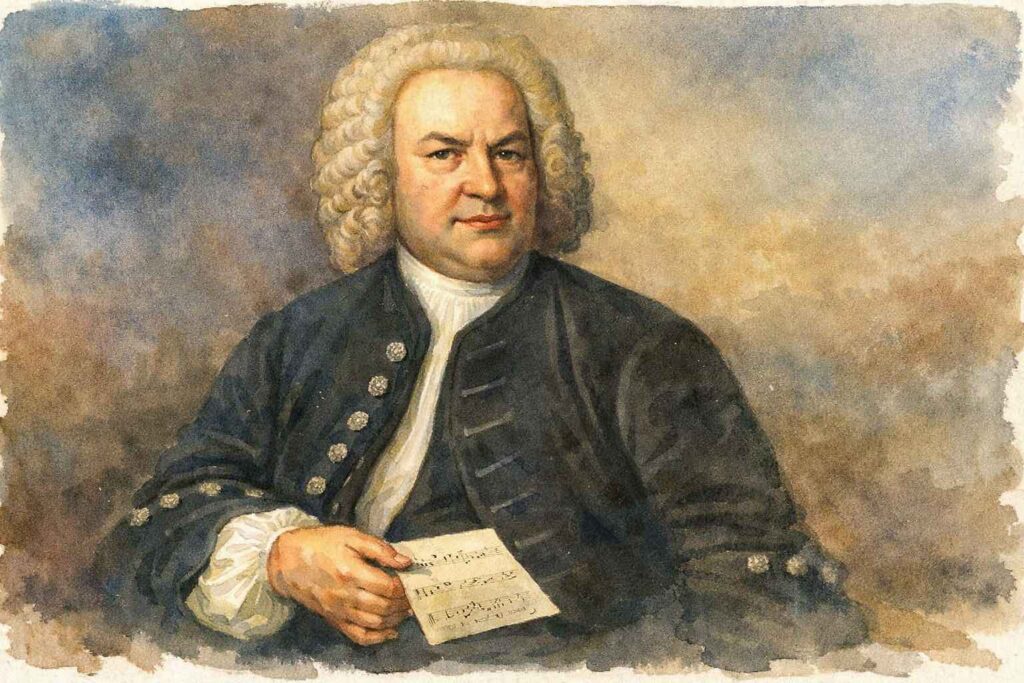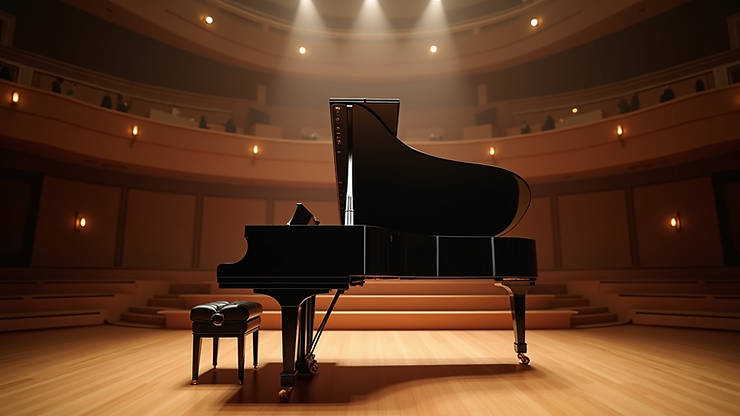Symphonies represent the most glorious form of music. They carry within them the history, social context, hopes, fears, musical tastes, and storytelling techniques of their time. Many composers hesitate to call their works a symphony—but when they do, it often means they’ve poured everything they had into it.

Symphonies are so significant in human culture that they can even shift the course of history—or at least, the history of music. Their peak influence came in the 18th and 19th centuries.
It’s impossible to definitively name the ten most important symphonies, let alone rank them in order. But here is my selection—ten symphonies that left a profound impact on composers, audiences, and the evolution of musical art.
1- Ludwig Van Beethoven, Symphony No.3 (1803)
Beethoven’s Eroica changed the course of music both as an art and a craft. Originally dedicated to Napoleon, Beethoven furiously scratched out the dedication after Napoleon attacked Austria—replacing idealism with a raw, heroic sound.
From those iconic opening chords to the final triumphant timpani, the symphony never falters. It’s built around the ingenious idea of a not-quite-complete melody (introduced by the cellos) that keeps evolving in fascinating directions.
Eroica was the first symphony to fully embody emotional expression. It broke the idea of music being just for entertainment. After this, composers began writing not to please their patrons—but to express themselves.
2- Gustav Mahler, Symphony No.9 (1909)
As Leonard Bernstein said, Mahler wasn’t just a composer—he was a prophet. Of Mahler’s ten symphonies (nine completed, one unfinished), No. 9 stands out as a vision of the 20th century’s turbulence.
Though written before World War I, the symphony seems to anticipate war, collapse, and existential dread. Scored for massive orchestral forces—including deep bells, glockenspiel, tam-tam, and more—it’s less about volume and more about sonic depth. The emotional range and sonic detail are breathtaking.
3- Ludwig Van Beethoven, Symphony No.9 (1824)
Beethoven only wrote one opera, but he mastered instrumental and vocal integration in his Ninth Symphony. For the first time in history, a major symphony included a vocal component—Schiller’s Ode to Joy.
The slow movement is placed third, not second—a bold structural choice that Mahler would later adopt. When someone says “The Ninth”, most people immediately think of this towering work in D minor, Op. 125.
4- Wolfgang Amadeus Mozart, Symphony No.40 (1788)
Mozart, often considered the greatest musical genius in history, wrote 41 symphonies before dying at just 35. His Symphony No. 40 is one of his darkest and most emotionally complex works.
Its opening is haunting yet elegant. The Andante moves between charm and unease, filled with harmonic tension and rhythmic ambiguity. The stormy Minuet and dazzling finale showcase Mozart’s ability to combine sophistication with drama.
5- Joseph Haydn, Symphony No.104 (1795)
Haydn, the “Father of the Symphony,” composed 104 symphonies and laid the groundwork for Mozart and Beethoven. His final six works—known as the London Symphonies—represent his artistic peak.
No. 104 is a model of classical balance and sophistication, combining structural clarity with rhythmic vitality. It’s a symphony that looks both backward to Baroque order and forward to Romantic expression.
6- Dmitri Shostakovich, Symphony No.10 (1953)
Living under Stalin’s regime, Shostakovich walked a tightrope between state approval and personal expression. His Symphony No. 10, written shortly after Stalin’s death, is filled with coded resistance.
The second movement is especially well-known—sharp, brutal, and almost cinematic. This symphony became a powerful symbol of artistic rebellion under oppression. Analyzing it in social and political context only deepens its impact—but for now, just listen to it in full.
7- Antonin Dvorak, Symphony No.9 “from the new world” (1893)
Commissioned to help define American music, Dvořák’s New World Symphony blends Czech folk sensibilities with Native American and African-American musical influences.
It’s a narrative symphony, full of memorable themes, rhythmic vitality, and cross-cultural resonance. One of the most performed orchestral works ever, it represents a fusion of Old World craft and New World spirit.
8- Hector Berlioz, Symphonie Fantastique (1830)
Inspired by hallucinatory love for actress Harriet Smithson, Berlioz created one of the first truly narrative symphonies. Symphonie Fantastique is musical storytelling at its most imaginative.
Instead of traditional forms like sonata or rondo, Berlioz used idée fixe—a recurring theme representing the beloved. This idea later inspired Wagner’s leitmotif. Symphonie Fantastique broke classical form wide open, making way for a more expressive, cinematic kind of music.
9- Ludwig Van Beethoven, Symphony No.5 (1808)
No musical phrase is more famous than the four-note motif that opens Beethoven’s Fifth Symphony. It’s as iconic as the Mona Lisa—not just a piece of classical music, but a symbol of music itself.
Beethoven weaves that motif throughout the entire work, building an intense unity. The transition from the third movement to the glorious finale—led by timpani—is one of the greatest moments in music history.
10- Johannes Brahms, Symphony No.4 (1885)
Brahms, often seen as Beethoven’s true successor, created a body of work rooted in tradition but rich with personal voice.
His Symphony No. 4 baffled many when it premiered. It ends not with triumph but with a Baroque passacaglia — austere, complex, and deeply emotional.
The symphony blends formal perfection with expressive power. Thematic integration, polyphonic texture, and classical restraint make it one of the most intellectually and emotionally satisfying works in the repertoire.
These were my picks — and of course, many will agree and many will disagree. But few musicians would deny the importance of these ten works. Whether or not they make someone’s personal top-ten list, when these symphonies play, every composer listens — and bows in reverence to the minds that created them. Let me know about your top picks in the comments…
#symphony #classical_music #music #romantic_music #orchestra #symphonic_music #music_history #history_of_music #instrumentl_music #orchestral_music







